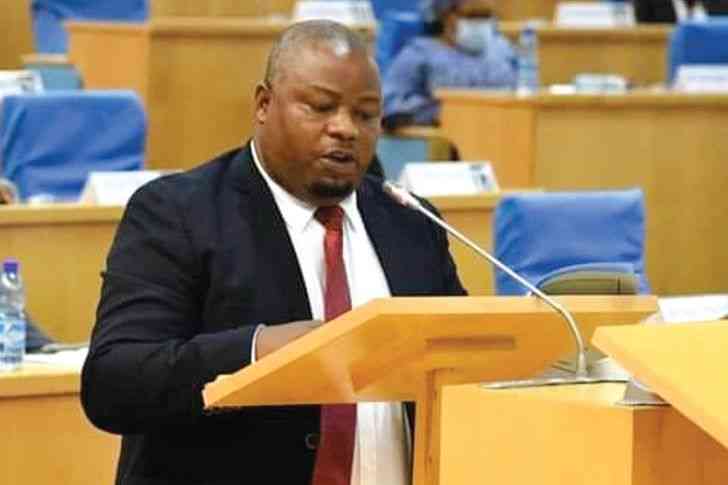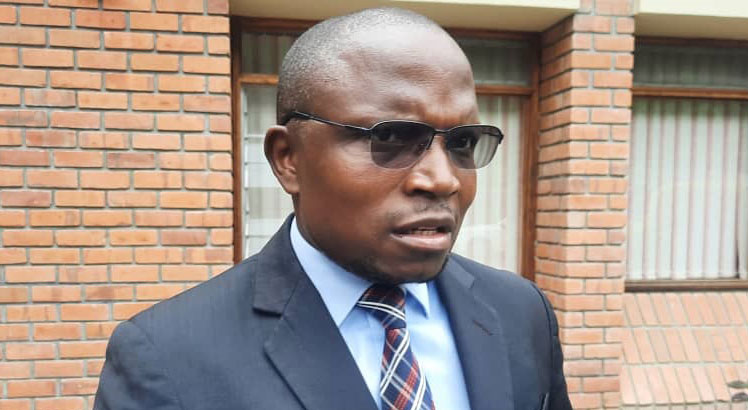DPP, UDF reject shadow cabinet
The opposition Democratic Progressive Party (DPP) has disputed a shadow Cabinet which Leader of Opposition in Parliament Kondwani Nankhumwa announced on Friday.
Nankhumwa announced his 33-member shadow Cabinet comprising 24 full ministers and nine deputy ministers from the DPP and its political bedfellow, the United Democratic Front (UDF).
But DPP administrative secretary Francis Mphepo in a statement yesterday said the party does not recognise Nankhumwa’s shadow Cabinet it already appointed its spokespersons on numerous specific matters.
He said the party was not consulted in the appointment of the shadow Cabinet; hence, those appointed have no authority to speak on behalf of the party in Parliament.

Mphepo said: “The DPP believes that a shadow Cabinet serves no purpose in a hybrid government system of presidential and parliamentary system practised in Malawi.”
He said the DPP will only use its appointed spokespersons on specific matters in Parliament to speak on behalf of the party.
After Nankhumwa announced the shadow Cabinet, UDF president Atupele Muluzi wrote on his Facebook page, saying the appointments were not done in consultation with his party.
“I have just learnt through social media the appointment of an opposition shadow Cabinet in Parliament that includes UDF members of Parliament [MP]. I wish this was done in consultation with the UDF leadership,” he wrote.
But when contacted yesterday, Nankhumwa maintained his stance, stressing that shadow ministers have always been part
and parcel of the parliamentary system.
In the British parliamentary practice, which Malawi borrowed a leaf from, the official Opposition Shadow Cabinet—usually known simply as the Shadow Cabinet— consists of senior members of the main opposition party in the august House, who scrutinise their corresponding government ministers, develop alternative policies, and hold the government to account for its actions.
Nankhumwa said in that regard, no one outside Parliament can have powers to dictate any affairs that concerns Parliament; therefore, the officials in the party are outside its jurisdiction on the matter.
“They [shadow Cabinet] can’t be formed by those outside Parliament. Whoever wants to dictate parliamentary affairs should be an MP [member of Parliament] first and probably become Leader of Opposition,” said Nankhumwa.
Efforts to speak to DPP president Peter Mutharika through his spokesperson Shadreck Namalomba proved futile yesterday.
However, University of Malawi political science lecturer Ernest Thindwa said it is not surprising that the party has distanced itself from Nankhumwa’s appointed shadow Cabinet because of the
current fighting in the party.
He sa i d : “While Nankhumwa is attempting to flex his political muscle within the party and demonstrate that he has significant influence among the party loyalists and top brass, the incumbent party leadership is keen to frustrate Nankhumwa’s drive for influence within the party.”
Thindwa said the development reveals not only a significant decline in the leadership, but also deep cracks in the party.
According to Thindwa, the party’s loss in the June 23, 2020 Fresh Presidential Election that the party its leadership no longer has patronage resources the party’s president used to enjoy in buying personal loyalty.
In a separate interview, governance commentator Makhumbo Munthali said the idea to have a shadow Cabinet comprising all opposition parties is good as it may facilitate some common positions in the opposition on matters of national interest being debated in Parliament.
However, he said there is need that such an arrangement does not, in principle, replace already existing party structures in Parliament.
Cracks in the DPP came to light in August 2020 when secretary general Greselder Jeffrey told The Nation that Mutharika had done his part and that there was need for new leadership.
Mutharika lost the election to President Lazarus Chakwera





